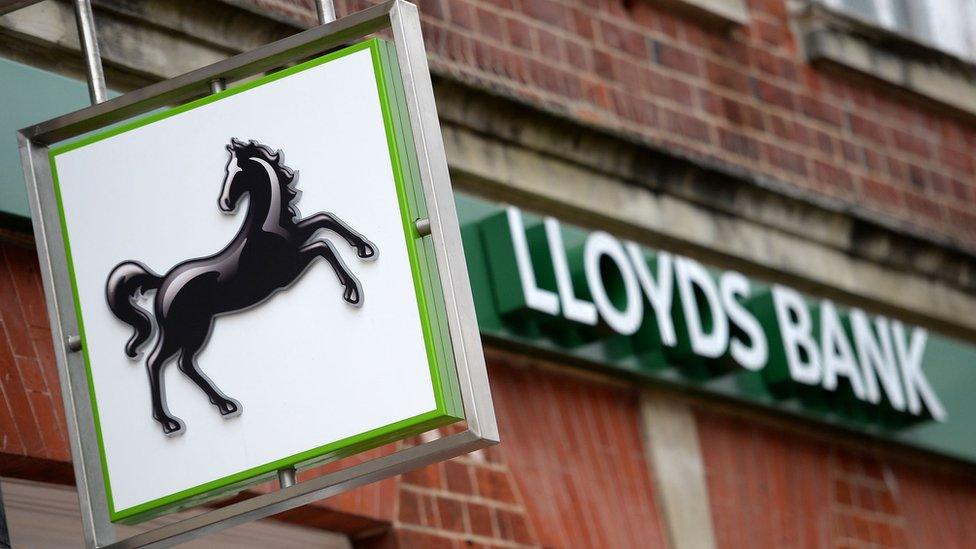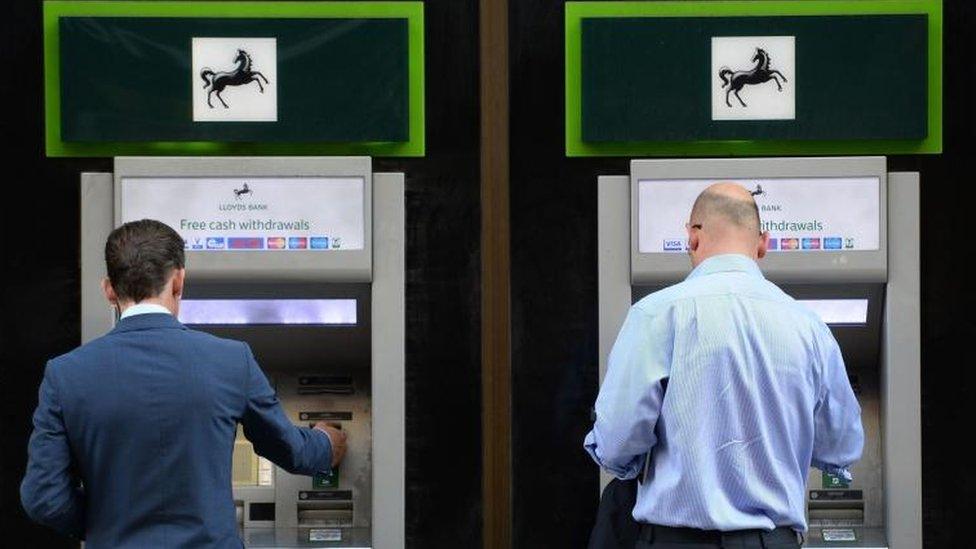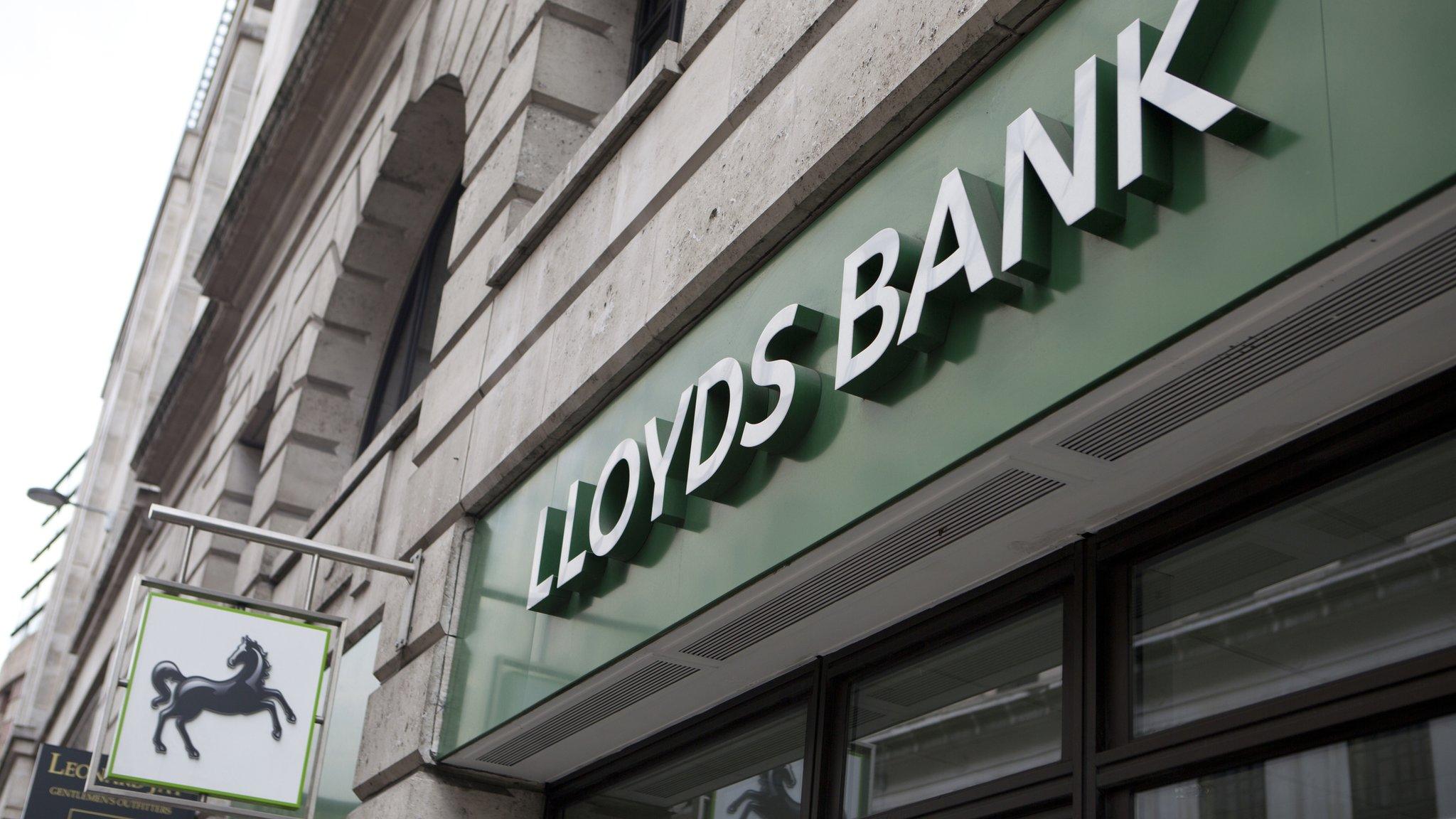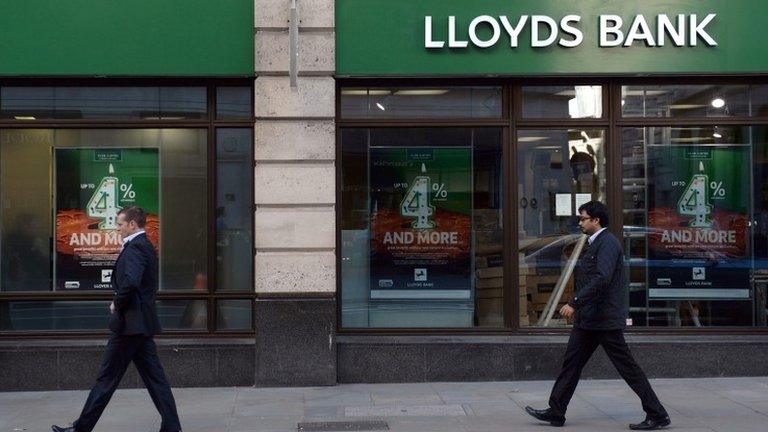Lloyds reports rise in third quarter profit
- Published

Lloyds Banking Group has said pre-tax profits for the three months to the end of September rose to £958m, up from £751m a year earlier.
However, the bank's shares fell as it set aside more money to compensate customers over the mis-selling of Payment Protection Insurance (PPI).
Lloyds set aside another £500m for PPI compensation, taking its total PPI bill to £13.9bn.
The bank also made less profit than City analysts had expected.
Underlying profit slid to £1.97bn from £2.16bn a year ago after tougher trading conditions in commercial banking, the bank said, external.
Analysts had estimated about £2.16bn for the underlying figure, which excludes PPI and which the bank considers a better measure of day-to-day business.
'Excessive' PPI wait
The financial regulator, the Financial Conduct Authority (FCA), has said it intends to set a 2018 deadline for people to claim compensation for mis-sold PPI.
The insurance, which offered to cover repayments on loans, was sold to millions of people who either did not want, need or understand it.
The FCA's decision was regarded as a boost for Lloyds, which has now set aside £13.9bn to compensate customers for PPI - more than any other bank.
Lloyds is "awaiting consultation to come out" over a time cap on PPI repayments, said finance director George Culmer, but he thought the deadline should be brought forward. "It's our view that two years is excessive."

UK 'not immune'
Lloyds said its net interest margin, a key profitability measure for the bank, rose to 2.64% from 2.47%. The rate is the difference between the money paid out to depositors and creditors and the interest taken from loans.
The bank said the margin was likely to be about 2.63% for the rest of the year, a superior rate to the 2.6% previously estimated.
A tougher commercial banking environment sent Lloyds' revenues down 4% to £4.2bn.
"We see the data as a reinforcement of weaker macro and corporate appetite going into the year end and next year," said Chirantan Barua, a banking analyst for Bernstein.
"The UK is not really immune to the global slowdown should be the takeaway."
Lloyds' shares dipped 4.6% in London trading.
The lender also topped up a fund it has set aside for other compensation to customers. It added £100m in the three-month period to make £535m for the year so far.
The cash pot is being used to compensate customers for mis-sold packaged bank accounts, a £117m fine for mis-handling PPI complaints, external and other infractions. The bank does not provide a full breakdown of what else the fund is for.
Share sale
The government owns a 12% stake in Lloyds and has said it plans to sell shares worth at least £2bn in the bank to private investors, as part of its plan to put the bank back in private hands.
As part of this, a sale aimed at private investors will be launched next spring.
Members of the public will be offered a 5% discount to Lloyds' market price and small investors seeking shares worth less than £1,000 will get priority.
Those who keep their shares for at least 12 months will get one bonus share for every 10 they own.
The value of the bonus share incentive will be capped at £200 per investor.
The move echoes government privatisations in the 1980s, when the Conservative government sold shares worth £3.9bn in British Telecom and a £5.6bn stake in British Gas.
The government saved Lloyds from collapsing at the height of the financial crisis in 2008 with a £20.5bn bailout, leaving it with a 43% stake.
The Treasury has recouped almost three-quarters of public funds used to rescue the bank by selling shares to institutional investors, such as pension funds.
- Published5 October 2015

- Published31 July 2015

- Published24 August 2015
